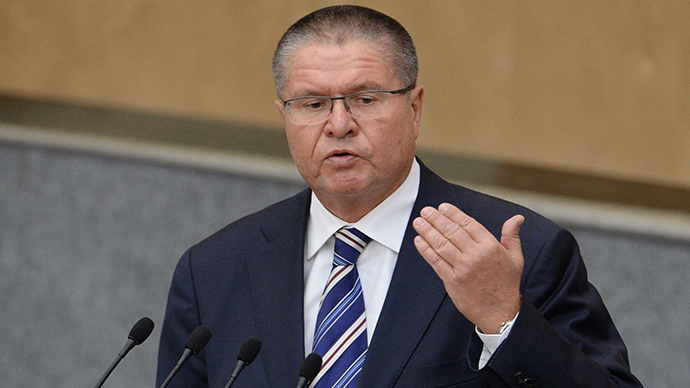
Less than two weeks ago, the Russian citizens were voting for their new representatives in parliament. After weeks of campaigning and spending huge amounts of money and the same if not bigger amount of promises, plans and hope for a better future, the ruling United Russia led by PM Dmitry Medvedev won with ease. Second, with big losses, came the Communist Party of Russia led by Gennady Zyuganov, third came the so-called Liberal-Democratic Party of Russia (LDPR) led by Vladimir Zhirinovsky, fourth came “A Just Russia” (or “Fair Russia”) led by Sergey Mironov, and two parties won one place each from the “majority vote” – the “Motherland” (“Rodina”) party and “Civil Platform” party.
To conclude the general information, United Russia won overall 343 seats from a total of 450, which means that the party will hold 76.22% of the seats in parliament. The Communist party won 42 seats, LDPR 39, “A Just Russia” 41 (won a lot from the majority voting and not as much on the proportional one), and the other two parties with each having one representative.
Enough with the statistics, how did these results happen? How did “United Russia” won so many seats and what should we expect?
We should start with what kind of a party is “United Russia.” Basically, this is the party which represents all Russian officials, oligarchs, businessmen, and even popular people like singers, retired professional athletes etc. It’s a party which is meant to represent the country and most of the elites. Its popularity has been sky rocking, due to the fact that it’s generally accepted that this is Vladimir Putin’s party, however for the who are closely following the political situation there know that Putin doesn’t really represent the interest of the party, nor does the party represent his view point. However, throughout the whole campaign, on almost all TV, radio and other advertisements, “United Russia” was advertised as the party of the President. Their PR campaign was brilliant, especially compared to the ones of the other parties. The voting system also helped them. Half of the MPs are being selected through proportional representation and the other half through majoritarian vote. In the first category they won a little bit above 50%, however the majoritarian vote from all the different regions actually gave them the boost to win more than 75% of the seats in parliament.
The results aren’t that much surprising when looking at the current tendencies in the county, and now it’s time to make some conclusions.
The first one is that almost nobody in Russia (as in every other country in the world) has a general idea of the political situation there. While the country’s economy is in meltdown, and the corruption levels are way above average, the ordinary Russian still votes for the same corrupt people who will bring no alternative, with the hope and faith that this is Putin’s party and he’ll fix all the problems. Well, it’s not hard to conclude that Putin will not fix them, or at least not most of them.
The second conclusion is that the clearly anti-Russian financial elite which are still in charge of the Russian economy will have the general support in parliament. With incompetent people like the Minister of Economic Development Alexey Ulyukaev whose nickname is the scuba diver because every quarters he’s reaching a new bottom in the economy, and insists that that is it and from then there’s only a way to go up, until the next quarter comes when he has found another bottom.

Russian Economic Development Minister Alexey Ulyukayev (RIA Novosti / Vladimir Fedorenko)
The architect of the current Russian economy Alexei Kudrin and his fellow puppets in the Ministry of Finance led by Anton Siluanov will continue to betray the Russian interests.
The third conclusion is that the other parties clearly don’t know how to win the votes of the Russian citizens. Their campaigns were weak, especially the one of the Communist party which was the biggest loser in this year’s elections. LDPR and its leader Zhirinovsky fortified their position with a good result, however parties with interesting ideas and real alternatives to the current status quo like “Rodina” (“Motherland) were nowhere near the 5% barrier.
Overall, these elections showed that we cannot expect a drastic change the internal situation in Russia, and that the foreign policy of the country will mainly be influenced by results of other elections – the ones in the USA on November 8th.




There are a couple of videos where the voting staff is putting huge amounts of ballots in the voting boxes. Why does the gouverment need to play dirty when they would win anyway?
It like wasn’t united russia that was stuffing ballots but the so called opposition sponsored by george soros and the like.The results from the boxes in the video were those who were declared invalid if it was the same vid I seen from this past election cycle in Russia. Russia has recently took measures to increase the security of election legitimacy and the cameras were one of those steps from what I understand. The Russian system of voting is much more legitimate in that there is some sort of paper trail to audit and other security measures, unlike in the us where I reside. The hbo documentary “hacking democracy” is good to educate about how easy it is to hack an electronic voting machines of different brands. All seem to be made with hacks built into “proprietary” software. Blackboxvoting.org keeps up with election fraud issues in the us as well if you start looking for material to compare us and other countries